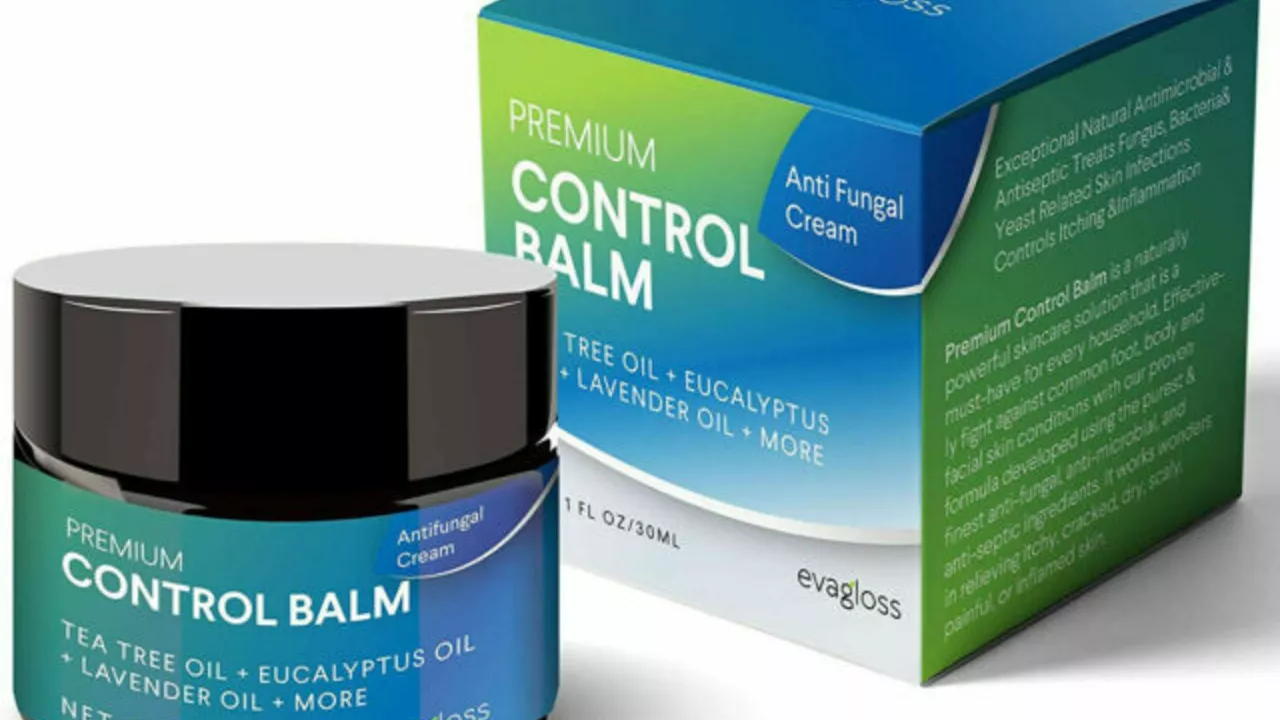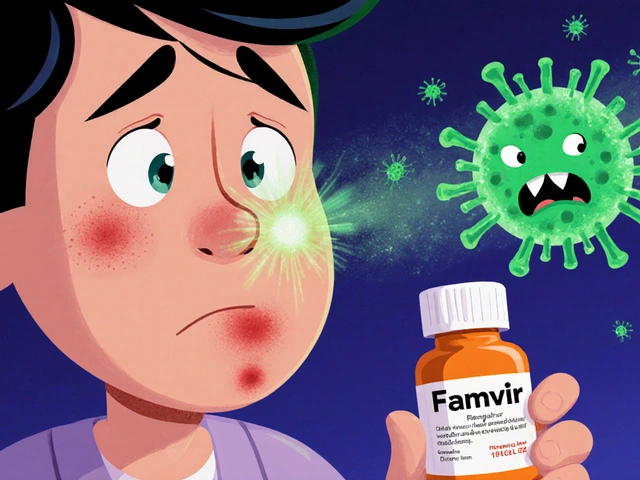How to choose the best anti-itch cream for your skin

Understanding the Different Types of Itch
Before diving into the world of anti-itch creams, it's helpful to understand the different types of itch that people commonly experience. This will give us a better idea of what we need to look for in an anti-itch cream. Itch can be broadly categorized into two types: acute and chronic. Acute itch typically lasts for a short period, whereas chronic itch can persist for weeks, months, or even years. Some common causes of itch include dry skin, insect bites, allergies, and skin conditions like eczema and psoriasis. It's important to identify the cause of your itch before choosing a suitable anti-itch cream, as different creams are designed to target different types of itch.
Analyzing the Active Ingredients
When it comes to choosing the best anti-itch cream for your skin, it's crucial to pay attention to the active ingredients. These ingredients are what provide the itch relief and should be chosen based on the type of itch you're experiencing. Some common active ingredients in anti-itch creams include hydrocortisone, calamine, menthol, and diphenhydramine. Hydrocortisone is a corticosteroid that helps reduce inflammation and is particularly effective for treating itch caused by eczema and insect bites. Calamine is a soothing agent that can help relieve itch from poison ivy, oak, and sumac, as well as sunburn. Menthol provides a cooling sensation that can temporarily alleviate itch from various causes. Diphenhydramine is an antihistamine that helps block the histamine response, making it effective for itch caused by allergies and insect bites.
Considering the Cream Base
While the active ingredients in an anti-itch cream are important, it's also essential to consider the cream base. This is the part of the cream that ensures it spreads evenly on the skin and provides a protective barrier. There are a few different types of cream bases, including ointments, lotions, and gels. Ointments are thick and greasy, making them suitable for very dry skin or areas with thick skin, such as the elbows and knees. Lotions are thinner and less greasy, which makes them more appropriate for everyday use and for individuals with oily skin. Gels are cooling and lightweight, making them ideal for soothing itch caused by sunburn or insect bites. It's crucial to choose a cream base that aligns with your skin type and the specific itch you're experiencing.
Reading Product Reviews
One of the most valuable sources of information when choosing an anti-itch cream is product reviews. These can provide insights into how effective a product is, how it feels on the skin, and whether it has any unwanted side effects. It's important to look for reviews from people who have experienced a similar type of itch as yours, as this will give you a better idea of how well the cream might work for you. Keep in mind that individual experiences can vary, so it's essential to read multiple reviews and weigh the pros and cons before making a decision.
Consulting a Healthcare Professional
If you're unsure about which anti-itch cream is best for your skin, it's always a good idea to consult a healthcare professional. This can be a doctor, dermatologist, or pharmacist, who can provide personalized advice based on your specific skin type and itch. They can also help you identify the cause of your itch if you're unsure, which will make it easier to choose a suitable anti-itch cream. Don't be afraid to ask questions and seek expert guidance, as this can ultimately help you find the most effective product for your needs.
In conclusion, choosing the best anti-itch cream for your skin involves understanding the different types of itch, analyzing the active ingredients, considering the cream base, reading product reviews, and consulting a healthcare professional. By taking these factors into account, you can find a suitable anti-itch cream that provides much-needed relief and helps you feel comfortable in your skin.





Brian Rice
June 26, 2023 AT 02:22Determining the appropriate anti‑itch preparation begins with a rigorous assessment of the underlying etiology. Patients who neglect to distinguish between allergic and irritant mechanisms often select a product that merely masks discomfort. Such superficial choices betray a careless disregard for dermatological stewardship. Hydrocortisone, while effective for inflammatory dermatoses, must be applied within the confines of its potency limits. Overuse of corticosteroid agents can precipitate skin atrophy, telangiectasia, and systemic absorption. Consequently, a moral obligation exists to educate consumers about the dangers of indiscriminate application. Calamine, though historically popular, offers only a transient soothing effect and lacks substantive anti‑inflammatory action. Users who rely exclusively on calamine for chronic eczema mistakenly assume that symptom relief equates to disease resolution. Menthol provides a cooling sensation, yet its vasodilatory properties may exacerbate pruritus in certain vascular conditions. Diphenhydramine, as an antihistamine, addresses histamine‑mediated itch, but its sedative side‑effects render it unsuitable for daytime use. The vehicle of the formulation-ointment, lotion, or gel-must be matched to the patient’s skin barrier status. Ointments seal moisture effectively, but their occlusive nature can provoke folliculitis on acne‑prone regions. Lotions confer a balanced hydration profile, yet they may be insufficient for xerotic skin on extensor surfaces. Gels excel in rapid absorption but lack the emollient capacity required for severe dryness. Ultimately, an evidence‑based selection process, guided by clinical guidelines, protects both individual health and public trust. Ignoring these principles invites avoidable complications and undermines the integrity of self‑care practices.
Stan Oud
July 13, 2023 AT 23:58It’s a solid rundown, but the obsession with user reviews feels excessive-
Ryan Moodley
July 31, 2023 AT 21:34A counterpoint to the previous caution is the necessity of personal agency. While prudence is commendable, an over‑emphasis on restraint can immobilize the average user seeking immediate relief. The experience of itching is visceral; delaying treatment in the name of protocol becomes a philosophical indulgence. Therefore, a balanced approach that respects both scientific rigor and intuitive self‑care is advisable.
carol messum
August 18, 2023 AT 19:10I usually keep a simple aloe‑gel handy for sunburns and it works great for quick cooling.
Jennifer Ramos
September 5, 2023 AT 16:46That’s a nice tip! Aloe gel is gentle and most people have it on hand 😊
Grover Walters
September 23, 2023 AT 14:22The distinction between vehicle types is indeed pertinent. An ointment’s occlusive nature can be beneficial for xerosis but may be counterproductive in acne‑prone zones. Selecting the appropriate base therefore aligns with both pathophysiology and cosmetic acceptability.
Amy Collins
October 11, 2023 AT 11:58From a formulation science perspective, the rheological profile of a gel can modulate epidermal drug diffusion kinetics, thereby influencing pruritic symptom latency.
amanda luize
October 29, 2023 AT 08:34Don’t forget that many “top‑rated” creams are pushed by covert marketing firms that seed fake testimonials; the data is often a PR smokescreen.
Chris Morgan
November 16, 2023 AT 06:10The whole hype around “natural” anti‑itch balms is a distraction from real efficacy. Stick to clinically proven actives.
Pallavi G
December 4, 2023 AT 03:46Remember, consistency is key! Apply your chosen cream twice daily for at least a week to see true results.
Rafael Lopez
December 22, 2023 AT 01:22When choosing a product, consider the following: • Active ingredient concentration • Skin type compatibility • Potential allergens • Expiration date • Storage conditions.